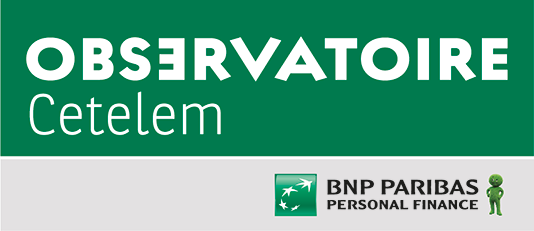Shortages: energy is at the heart of people’s fears
and to our day-to-day lives, conjuring memories of tough economic times past.
This reappearance can be traced back to a few months before the publication of this Cetelem Barometer, having been mentioned in relation to the supply-chain problems caused by the Covid crisis, which made it harder to obtain face masks and semi-conductors, for instance. Exacerbated by the war in Ukraine and the climate disruption of 2022, the energy crisis has placed the term back at the forefront of people’s minds.
Countries have entered a dry spell
3 in 4 Europeans expect shortages to affect at least one commodity in their country. 27% go as far as stating it as a certainty. Although there are no marked geographical differences when it comes to this expectation, France and the United Kingdom are where these fears are the greatest (87% and 83%). In both countries, media coverage of recent energy shortages has been intense, driven in no small part by the government. The types of shortage respondents fear the most are those relating to energy. Fuel-oil shortages, power cuts, gas cuts and petrol shortages are cause for concern for at least 1 in 2 Europeans. Once again, France and the United Kingdom are where such concerns are most common.
Spotlight on the prospect of energy shortages
When it comes to potential electricity shortages, 58% of Europeans say they are worried. Western Europe is where these concerns are the greatest, particularly Italy, the UK and Spain (71%, 68% and 67%). Having become an importer of electricity following the shutdown of several nuclear reactors, France is now facing a degree of vulnerability that it seemed to have been spared, which translates into a higher than average percentage of people who fear the possibility of power cuts.
A potential inability to pay bills
People’s concerns that they will have to contend with shortages are compounded by the fear that they may struggle to pay their energy bills. These issues are on the minds of 7 out of 10 Europeans, with the highest proportions being found in the Mediterranean countries but also in Romania and the Czech Republic. Here again, women, young people, those on a low income and inhabitants of small and mid-sized conurbations express the greatest concern.
Electricity, gas and petrol are the trio that spark the greatest fears of privation. Overall, 6 out of 10 Europeans are worried about electricity shortages, and the proportion is especially high in the countries mentioned previously. The Italians are particularly pessimistic, posting a score 16 points above the overall average.
Food shortages are also cause for concern
Energy is not the only sector with which the word “shortage” is associated. The food sector is expected to be similarly impacted. 55% of Europeans believe they will be affected by food shortages over the next few months. The Italians, Spanish, Portuguese and British are by far the most fearful of this possibility (70%, 69%, 67% and 64%).
Clear differences can also be observed according to socio-economic factors. Women, people in the youngest age bracket, individuals on a low income and inhabitants of mid-sized cities are the most concerned.
It should also be noted that the expectation of food shortages in no way correlates with the inflation affecting this product category. Hungary, which has the highest food inflation in Europe, displays one of the lowest levels of concern, while France, where food inflation is the lowest, sits above the overall average.



